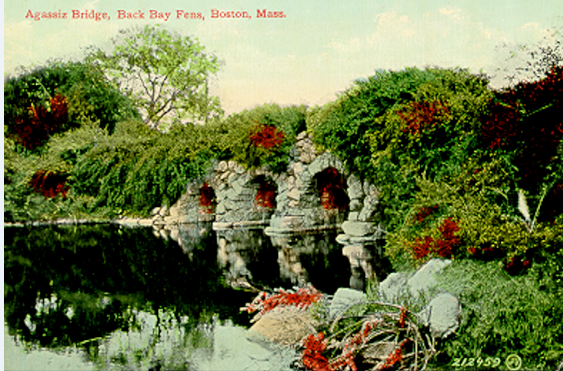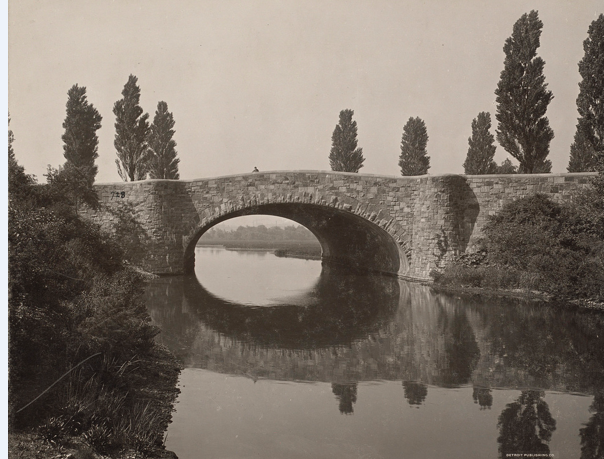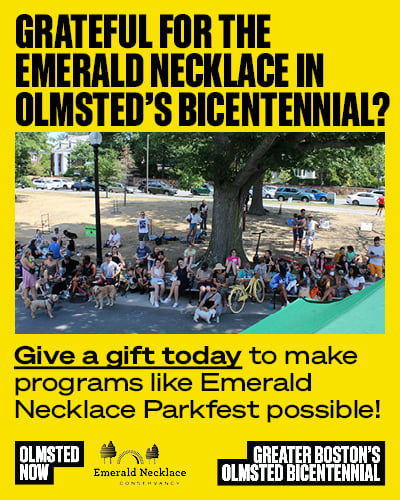It is hard to overstate the influence of Frederick Law Olmsted on the shape of contemporary cities. Parks designer, visionary, social reformer, fervent abolitionist, journalist: Olmsted’s work has a profound effect on how we think about public spaces—and public life.
As Olmsted’s 2022 Bicentennial approached, a broad consortium of parks and community organizations invited Ummo to help rethink the meaning and value of Olmsted’s legacy for the next generation.
And so, in our first presentation to the client, Ummo flashed an opening slide: “Olmsted Bicentennial is NOT about Olmsted.”

That’s because we recognized right away that a brand is not a hagiography—that to be relevant, we needed to foreground Olmstedian ideas rather than indulging in hero worship. In consultation with the client team and a broad group of stakeholders, we hit on an important insight: people don’t encounter parks and public spaces as constructs, but as deeply felt experiences. Whether in joy or grief, for communal occasions or moments of respite, people come to these places to be themselves. This notion remained at the core of the brand strategy: individual stories must be located at the center of whatever we do.
We started by starting. Concurrently with the initial research and community engagement phase of work, we quickly deployed a “beta” website that announced the Olmsted Bicentennial, sounded its primary themes, and invited other partners to join in the effort. The beta site was launched in record time and included voices of community leaders, scholars, and historic figures such as Olmsted himself.
This double-speed process—both launching a prototype website and working towards a fully articulated brand—was challenging but ultimately profoundly rewarding. Feedback from the beta site was essential in guiding the development of the brand. Much of the feedback targeted the beta site’s overly institutional look and feel: to be authentic and identifiable by public audiences, it needed to be more direct, approachable, and bold.

The final iteration of the website was radically different. We named it OlmstedNow, emphasizing a sense of contemporary urgency. “Come together and be seen,” the tagline announced, cutting a lengthy Olmsted quote to its essence. We built a platform that resembled a public blog more than an institutional mouthpiece. It asked users to submit their own stories, share family anecdotes, snap pictures of frolicking dogs. We sourced interviews and short essays from writers and map makers, student volunteers and academic historians. Illustrated with commissioned drawings of parks, the site feels personal and familiar. It was translated into four languages in order to ensure the widest possible participation; furthermore, it incorporates accessibility features for people with visual impairments. The result is joyful, vivid cacophony rather than a restrained solo performance.

Ummo also developed a full branding suite, complete with guidelines and tools to help multiple stakeholders take advantage of brand assets. The word mark is assertive, with a DIY feel; it is balanced by the tagline “Greater Boston’s Olmsted Bicentennial.” Together, these elements ground all OlmstedNow communications. Original illustration, commissioned from Boston-based artists, brings an imaginative, surprising note to the visual identity. A combination of illustration, photography, logos, typography, templates, quotes, and much more, the brand is intended for users with any level of formal skill or equipment. This democratic approach was driven by necessity, since expanding the client consortium, as we had hoped, brought a number of small-scale neighborhood organizations and nonprofits into the Bicentennial. The brand we delivered—and the assets that constitute it—are universally accessible.
We are gratified that the Bicentennial brand launched successfully, coinciding with Olmsted’s 199th birthday. Today, a broad-based consortium is united by central ideas, energized by a common identity, and committed to an inclusive discussion of Olmsedian ideas. The brand we developed is a robust tool in service of a greater purpose—to bring together people of all races, ages, and abilities to imagine the future of their shared places together.
Click here for the full story: https://studioummo.com/work/olmstednow/





